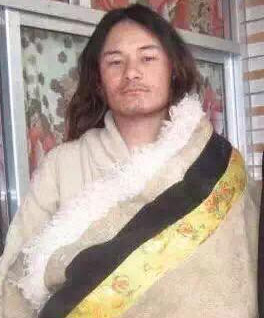
Shokjang
Shokjang, also known as Druklo, was originally detained by police in Rebkong (Chinese: Tongren), Qinghai, on March 19, 2015, and sentenced to three years in prison. Known for his reflective and thought-provoking articles on issues of ethnic policy in the People’s Republic of China, Shokjang wrote an eloquent letter from detention appealing against his prison sentence:
I am a Chinese citizen, and as a Tibetan intellectual, I have to be concerned for the precious lives of my own kin. If doing so is called ‘instigating separatism’, nothing is more laughable… If one talks about instigating separatism, I have not written even a word of separatism, much less instigated it. If I write about an incident in which I suffered harm, and that becomes an unfounded accusation against me, and I write an appeal to the court about the incident, that does not make me a separatist.
The International Campaign for Tibet and other organizations around the world have highlighted Shokjang’s case and called for his release since news of his detention became public. ICT included him among the list of priority political prisoners during the 2017 and 2018 Tibet Lobby Day events, and raised his case with Members of Congress and State Department staff. Although his prison sentence has ended, his movements and ability to contact the outside world will remain constricted by Chinese authorities. Former political prisoner Dhondup Wangchen described feeling ‘frustrated and increasingly isolated’ in the face of similar restrictions after his release from prison:
Following the release, I was always monitored closely and the police would contact me on my phone constantly. I didn’t feel free at all as I was not allowed to contact or meet my friends. Even those friends who were in touch with me or visited me, would be harassed by authorities. I wanted to study and improve my Tibetan and I wanted to work, but in those 3.5 years I couldn’t do anything.
Matteo Mecacci, President of the International Campaign for Tibet, said: “This courageous young man, who writes with such eloquence and passion, has important things to say, and he would be allowed to do so unimpeded if the Chinese government cared about the well-being of its people and society. Locking him up for three years only served to reveal the fearful nature of Chinese Communist Party rule in Tibet. International organizations and governments who have raised his case must now express the importance of Shokjang’s safety now that he has been released.”

